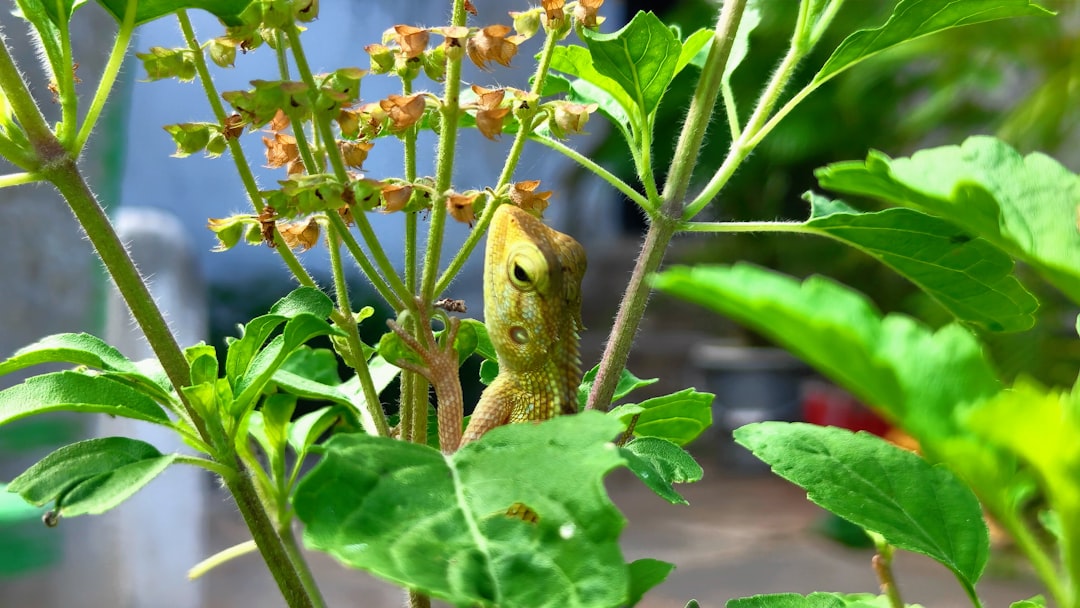The Secret of Basil's Best Neighbors in the Garden

In the world of edible gardening, basil stands out as a versatile and fragrant herb that not only enhances the flavor of countless dishes but also plays a crucial role in a thriving garden ecosystem. One of the most effective ways to maximize the health and productivity of your basil plants is by strategically planting companion plants nearby. These companion plants offer a range of benefits, from reducing pests to providing shade and ultimately boosting your harvests.
One of the top companion plants for basil is tomatoes. Tomatoes and basil have a long - standing symbiotic relationship. Basil helps to repel pests that commonly afflict tomatoes, such as aphids, whiteflies, and tomato hornworms. The strong aroma of basil masks the scent of tomatoes, making it harder for these pests to locate their target. In return, tomatoes provide some shade for basil during the hottest parts of the day, especially in regions with intense sunlight. This shade can prevent basil from wilting and keep it growing vigorously. When planted together, the flavors of both plants are also enhanced. The combination of fresh tomatoes and basil is a classic in Italian cuisine, and growing them side by side in the garden ensures that you have a ready supply of these complementary ingredients.
Another excellent companion for basil is peppers. Similar to tomatoes, peppers benefit from basil's pest - repelling properties. Basil can help protect peppers from pests like thrips and spider mites. Additionally, the growth habits of peppers and basil are compatible. Peppers tend to grow taller and more upright, while basil has a bushier growth pattern. This allows them to coexist without competing too much for space or sunlight. The presence of basil can also improve the flavor of peppers, adding a subtle, aromatic undertone to the peppers' natural taste.
Marigolds are a well - known companion plant in many gardens, and they pair beautifully with basil. Marigolds emit a strong scent that deters a wide variety of pests, including nematodes, which can damage the roots of basil and other plants. Planting marigolds around the perimeter of your basil patch or interspersing them among the basil plants can create a natural barrier against these harmful pests. Moreover, marigolds add a splash of color to the garden, making it more visually appealing. Their bright orange and yellow flowers attract beneficial insects such as ladybugs and lacewings, which feed on aphids and other pests that might otherwise harm your basil.
Nasturtiums are also great companions for basil. Nasturtiums are not only beautiful with their vibrant flowers but also serve as a trap crop. They attract aphids away from basil and other valuable plants. The aphids are drawn to the nasturtiums, which act as a sacrificial plant. By sacrificing the nasturtiums, you can protect your basil from aphid infestations. In addition, nasturtiums have a peppery flavor, and their leaves and flowers are edible. You can use them in salads or as a garnish, adding an extra layer of functionality to your garden.
Chives are another herb that pairs well with basil. Chives have a mild onion - like flavor and can help repel pests such as Japanese beetles and carrot flies. When planted near basil, chives can also enhance the overall health of the soil. They are known to improve soil structure and add nutrients over time. The presence of chives can stimulate the growth of basil, leading to larger and more flavorful leaves. Furthermore, chives and basil can be used together in many culinary creations, making them a practical combination in both the garden and the kitchen.
In conclusion, incorporating these basil companion plants into your edible garden is a smart and rewarding strategy. By reducing pests, providing shade, and improving the overall growing conditions, these companion plants can significantly boost your basil harvests. Whether you are a seasoned gardener or just starting out, experimenting with these plant pairings can lead to a more productive and enjoyable gardening experience. So, go ahead and plant these basil companions in your garden, and watch as your basil thrives like never before.